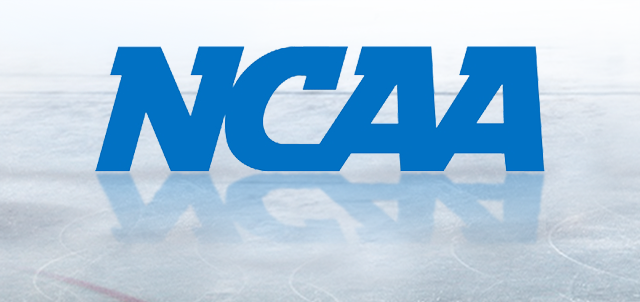NCAA rules committee approves 4-on-4 overtime, more
By @MichaelCaples –
The NCAA Men’s and Women’s Ice Hockey Rules Committee wants to see four-on-four overtime brought to the college level of hockey.
During its annual meeting on June 7-9 in Indianapolis, Ind., the committee recommended that all NCAA regular-season contests be played with an overtime format of four-on-four action for five minutes.
If the game is still tied, the committee has also approved ta rule in which teams would play three-on-three for five minutes, and then use a sudden-death shootout to determine a winner.
Conferences can decide on whether they wish to implement the latter rule.
The proposal will not affect postseason tournament games – conference or the national tournament.
“In our review of the game, it is clear that goal scoring is continuing to trend down,” said Tom Anastos, chair of the committee and head men’s coach at Michigan State University, in a release. “After a thorough discussion of the overtime process, and seeing the success experienced by the National Hockey League and others using four-on-four, we believe this change will be a positive step for NCAA hockey. Our committee is charged with finding a balance in making changes that we believe will have a positive impact on the game, yet respect the traditions of the sport. We feel the changes we have adopted meet those objectives and will enhance our brand of hockey.”
Other notable recommendations:
- The committee proposed moving the hash marks on the face-off circles in the offensive and defensive zones from the current 4-feet to 5-feet, 7-inches, so there is more separation between players. That would be a preferred distance, which allows for flexibility in compliance by teams; NCAA championship competition will have the wider hash marks.
- Officials and players will now have to wear helmets any time they are on the ice, with the exception of the national anthem.
- A coach’s challenge will be required for video replay to be used to review goals relating to offsides, except for the last two minutes of the game and overtime. Officials will review offsides during the last two minutes and the extra time. In postseason tournaments, all aspecdts of video replay will be utilized by referees, including offsides, without the need of a coach’s challenge.


